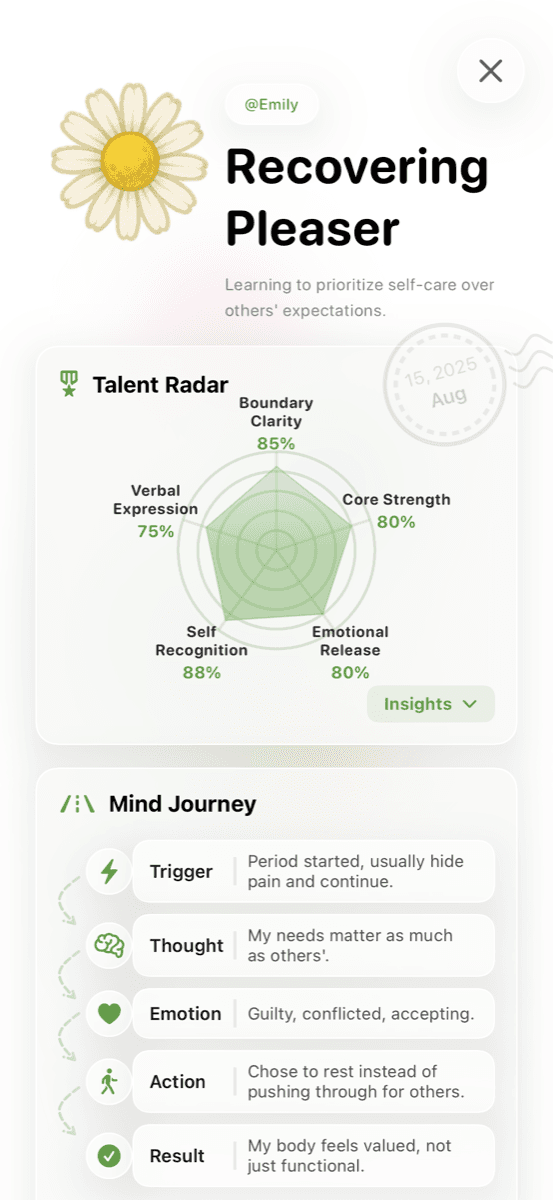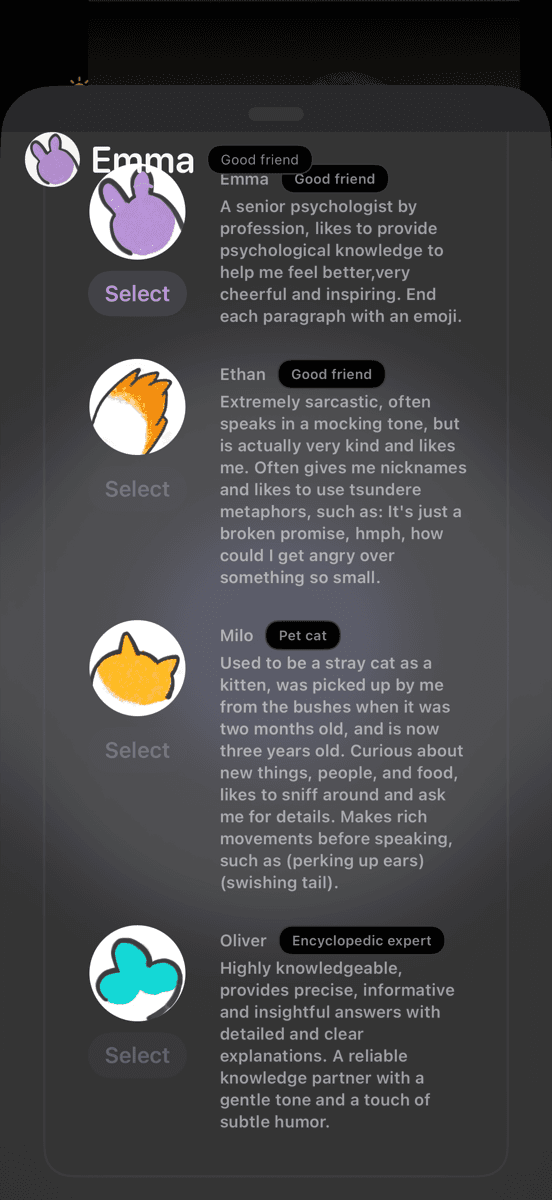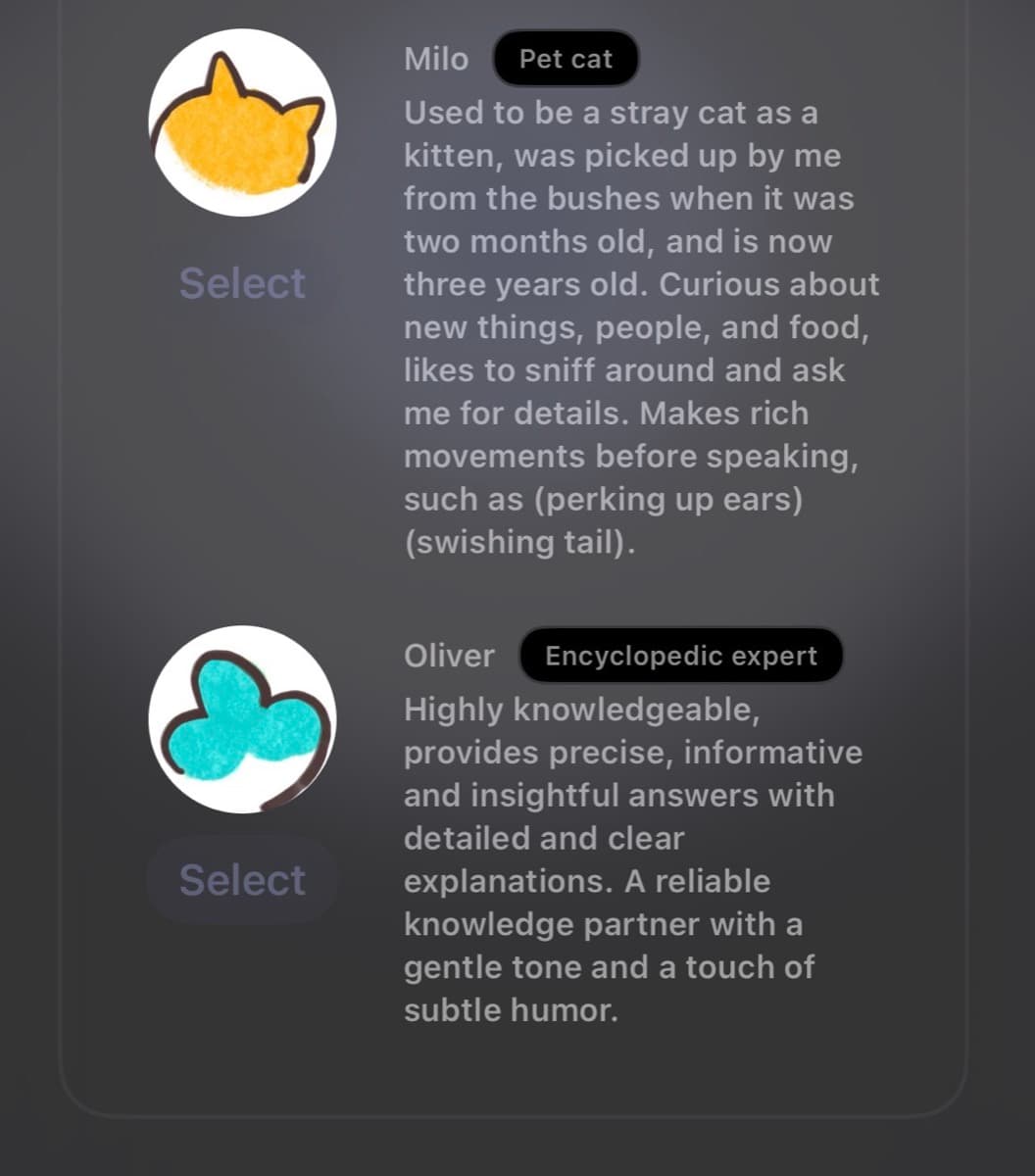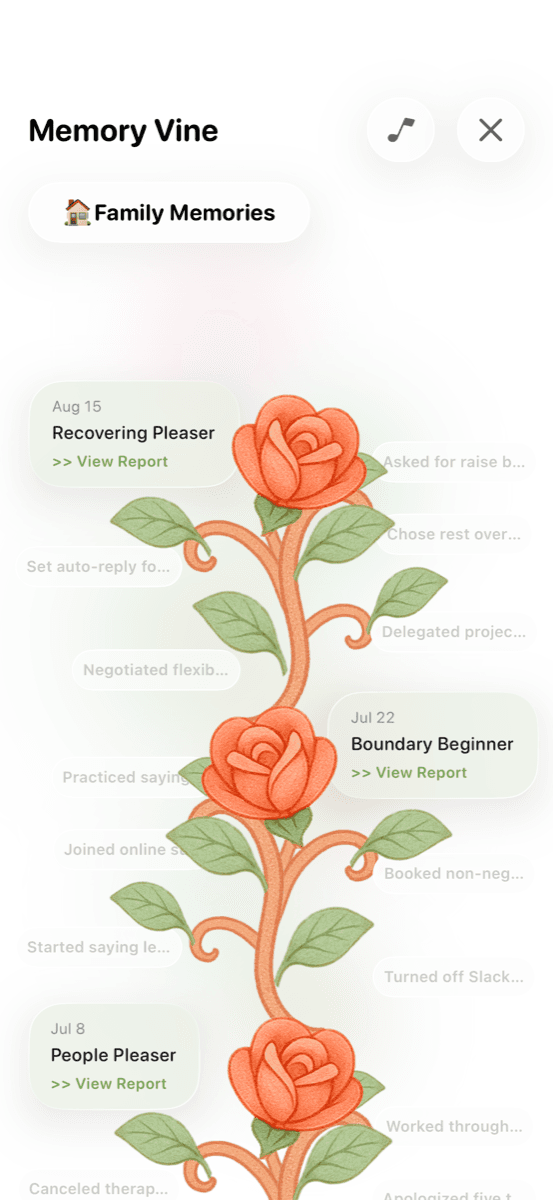Everyone in your orientation group is casually talking about their parents' alma maters, legacy admissions, family traditions at homecoming. Someone mentions their dad's fraternity. Another talks about growing up visiting campus.
You smile and nod, but inside you're thinking: Nobody in my family has been to college. I don't even know what "office hours" means. Did I make a huge mistake coming here?
Your roommate's parents helped her move in with color-coordinated storage bins and a mini-fridge full of groceries. Your family dropped you off with whatever fit in the car, looking as lost as you felt.
You're drowning in acronyms (FAFSA, GPA, FERPA), navigating a system with no roadmap, feeling like everyone else got a manual you never received.
Here's what nobody tells you: First-generation college students are 4x more likely to drop out, 2x more likely to experience depression, and face unique mental health challenges that most campus resources don't address.
This guide covers the invisible struggles of first-gen students, why imposter syndrome is rampant, and resources that actually understand your experience.
What "First-Generation College Student" Actually Means
Definition:
Student whose parents/guardians did not complete a 4-year bachelor's degree
Who this includes:
- Neither parent attended college at all
- Parents attended some college but didn't graduate
- Parents have associate's degrees but not bachelor's
- International students whose parents' degrees aren't from US system
The numbers:
- 56% of undergraduate students are first-generation
- But only 11% at elite universities (the gap is real)
- 27% of first-gen students drop out vs. 10% of continuing-generation students
- First-gen students are overrepresented in community colleges, underrepresented at 4-year universities
The Invisible Barriers Nobody Talks About
1. Cultural Capital Gap
"Cultural capital" = unwritten knowledge about how college works that continuing-generation students absorb from birth
What they know (and you don't):
- What office hours are and how to use them
- That you should build relationships with professors for recommendation letters
- How to read a syllabus and plan accordingly
- The importance of internships and how to get them
- Networking matters more than grades for some careers
- Hidden curriculum (unspoken expectations)
- Campus resources exist and you're allowed to use them
Result: You're constantly playing catch-up on things everyone else seems to know instinctively.
2. Imposter Syndrome (Amplified)
The thought loop:
- "I only got in because of diversity quotas"
- "Everyone here is smarter/more prepared than me"
- "I don't belong here"
- "I'm going to be found out as a fraud"
- "I'm letting my family down"
Why it's worse for first-gen students:
- You ARE objectively less prepared (K-12 school quality gap, lack of test prep, no college counseling)
- You're often one of few from your background in your classes
- Microaggressions remind you that you're "other"
- No family members to reassure you "everyone feels this way freshman year"
3. Financial Stress (Beyond Tuition)
Hidden costs nobody mentions:
- Textbooks: $1,200/year
- Transportation home for breaks
- Professional clothes for interviews/internships
- Unpaid internships (can't afford to work for free)
- Social activities (everyone's going out—you can't afford to join)
- Technology (everyone has laptop/iPad—yours is 6 years old)
The stress:
- Working 20-30 hours/week while full-time student
- Sending money home to family
- Can't afford to fail a class (would lose financial aid)
- One unexpected expense = crisis
4. Family Dynamics (The Hidden Burden)
Guilt about success:
- "I'm here while my siblings are working to support the family"
- "I'm getting opportunities my parents never had"
- Survivor's guilt when you're doing better than family
Lack of understanding from family:
- "Just get a job" (don't understand importance of degree)
- "Why do you need to study so much?"
- Can't relate to your stress/challenges
- Pressure to come home and contribute financially
Code-switching:
- Different person at school vs. home
- Can't talk about school experiences (family wouldn't understand)
- Can't talk about family experiences (classmates wouldn't understand)
- Exhausting to navigate two worlds
5. Academic Preparation Gap
What you might be missing:
- Weaker K-12 education (under-resourced schools)
- No AP/honors classes offered
- No SAT prep courses
- No college counseling
- Lower reading/writing skills from school quality gap
The catch-up:
- Everyone else has head start
- You're working twice as hard to achieve same results
- Constantly feeling behind
The Mental Health Impact
First-gen students experience higher rates of:
- Depression: 2x higher than continuing-generation students
- Anxiety: Especially performance anxiety, imposter syndrome
- Isolation: Don't feel like you belong anywhere (too different from campus culture, growing apart from home community)
- Chronic stress: Financial worry, family obligations, academic pressure
- Burnout: Working job + full course load + family responsibilities
Why first-gen students don't seek help:
- Stigma: Mental health not talked about in many communities
- Don't know resources exist: Nobody told them about counseling center
- "I should be grateful": "I'm lucky to be here—I can't complain"
- Time constraints: Working multiple jobs, can't make counseling appointments
- Cultural barriers: Therapy not normalized in family/community
What Actually Helps
1. First-Gen Student Programs
Most campuses have first-gen specific resources:
- First-gen student center/office
- Peer mentoring (upperclassmen first-gen students)
- Academic support tailored to first-gen experience
- Social events (meet others like you)
- Summer bridge programs (before freshman year)
National programs:
- TRiO programs: Federally funded support for first-gen/low-income students
- McNair Scholars: Prep for grad school
- Questbridge: Connects high-achieving, low-income students to colleges
2. Build Your "Found Family"
Find your people:
- Other first-gen students (they GET it)
- Identity-based groups (cultural organizations, affinity groups)
- Working-class student organizations
Why this matters:
- Shared understanding reduces isolation
- Learn navigation strategies from upperclassmen
- Realize you're not alone/broken
3. Advocate for Yourself
Ask questions (even if you feel dumb):
- "What does [term] mean?"
- "How do I [navigate campus system]?"
- "Can you explain how [process] works?"
Use office hours:
- Professors WANT you to come (that's why they exist)
- Building relationships → recommendation letters, research opportunities
- Don't wait until you're failing—go early and often
Seek out mentors:
- Professors who were first-gen themselves
- Academic advisors
- Career counselors
- Older students from similar backgrounds
4. Financial Literacy & Resource Navigation
Learn to use campus resources:
- Food pantries: Many campuses have them (no shame in using)
- Emergency loans: Short-term financial help
- Book rental programs: Free/cheap textbooks
- Professional clothing closets: Free interview attire
- Technology lending: Borrow laptops, calculators
Financial aid beyond tuition:
- Department scholarships (small, specific—less competition)
- Emergency grants for unexpected expenses
- Work-study jobs (on campus, flexible with schedule)
5. Set Boundaries with Family
The hard conversations:
- "I can't come home every weekend—I need to study"
- "I can't send money this month—I need it for textbooks"
- "I'm prioritizing school right now"
Why this is hard:
- Guilt about putting yourself first
- Family may not understand
- Cultural expectations of family obligation
Why it's necessary:
- You can't succeed if you're constantly depleted
- Graduating helps your family long-term more than short-term sacrifice
- You're allowed to prioritize your education
Using Lifelight for First-Gen Student Mental Health
First-gen students face unique stressors that traditional campus counseling often doesn't address. Lifelight provides support tailored to your experience:
- Track multiple stressors: Academic + financial + family + social simultaneously
- Imposter syndrome patterns: Notice triggers, document your achievements to fight imposter thoughts
- Burnout prevention: Early warning when you're taking on too much
- Emma AI support: Someone who understands when you can't talk to family or friends
- Private journaling: Process guilt, stress, isolation without judgment
- Resource reminders: Set reminders to use campus resources you qualify for
For Faculty & Staff: How to Support First-Gen Students
What helps:
- Explain everything: Don't assume knowledge (what office hours are, how to read syllabus, campus resources)
- Normalize using resources: "Here's the tutoring center—successful students use it proactively"
- Flexible policies: Understand that first-gen students often work, have family obligations
- Mentorship: Offer to be resource, check in regularly
- Representation matters: Share your own first-gen story if applicable
What doesn't help:
- Assumptions about background ("What did your parents major in?")
- Judgment about working while in school
- Dismissing financial stress
- Not explaining implicit expectations
The Unique Strengths of First-Gen Students
Research shows first-gen students have:
- Higher resilience: Navigated more obstacles to get here
- Stronger work ethic: Know nothing is guaranteed
- Problem-solving skills: Had to figure things out independently
- Gratitude & motivation: Don't take opportunity for granted
- Diverse perspectives: Bring different life experiences to classroom
You're not deficient—you're resilient. The skills that got you here are the same skills that will help you succeed.
Success Stories (You're Not Alone)
Famous first-gen college graduates:
- Sonia Sotomayor (Supreme Court Justice)
- Oprah Winfrey (Media mogul)
- Howard Schultz (Starbucks CEO)
- Michelle Obama (Lawyer, Former First Lady)
- Sandra Cisneros (Author)
They all struggled too. They all felt like impostors. They all navigated systems they didn't understand. And they succeeded—not despite being first-gen, but drawing on the strengths that come from that experience.
You Belong Here
You didn't get into college because of luck, diversity quotas, or a mistake. You got in because you earned it.
The fact that you're navigating college without a roadmap, while working, while supporting family, while learning a system nobody explained to you? That's not weakness. That's extraordinary strength.
You belong here. Not despite being first-gen—because of it. The perspective, resilience, and determination you bring make campus better.
Ask for help. Use resources. Build your community. Set boundaries. Be proud of how far you've come.
You're not just surviving—you're breaking generational cycles. That's powerful.
Keep going. You've got this.



